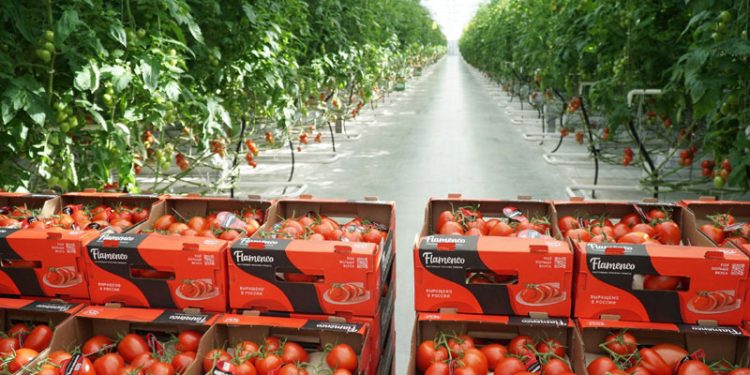#agriculture #greenhousetechnology #vegetableproduction #agriculturalinnovation #sustainablefarming #Mordovia #closed-groundcultivation #cropyield #agriculturaleconomy
In a significant stride towards overcoming natural constraints in vegetable cultivation and boosting production volumes, Mordovia has marked a pivotal milestone. On August 30, the suburban complex known as “Teplichnoye” unveiled a new block dedicated to closed-ground vegetable production, introducing an expansion that has brought around 120 new job opportunities to the complex.
Spanning an impressive 8 hectares, the area covered by the new greenhouse complex is part of a larger initiative that expands the total cultivation area for closed-ground vegetables to 30 hectares.
The state-of-the-art greenhouses of this innovative complex will be dedicated to cultivating modern hybrid vegetables, including the well-known and highly sought-after “Flamenco” tomato, the semi-fruiting cucumber variety “Meva,” and various leafy lettuces.
Remarkably, the tomatoes within these new greenhouses have not only been sown but have also progressed into the fruit-bearing phase. The inauguration of the new closed-ground vegetable production block was graced by the presence of Artem Zdunov, the Head of Mordovia.
“This is an incredibly substantial project, with an investment of 2.5 billion rubles,” commented Artem Zdunov. “And the most important aspect is the outcome: these greenhouses will yield 9 thousand tons of vegetables annually. It’s truly commendable!”
Zdunov expressed gratitude to the builders, acknowledging their completion of this crucial republic-wide project within just two years. He also wished success to the collective efforts of the greenhouse complex in realizing their vegetable produce goals. Notably efficient builders and workers of the complex received accolades from the Head of Mordovia.
Elena Rodina, the Director of “Teplichnoye” Joint-Stock Company, extended her gratitude to the workforce and the Government of Mordovia, emphasizing their immense contribution to the realization of this large-scale project. She highlighted the awards presented to outstanding workers of the greenhouses.
After inspecting the new greenhouses, Artem Zdunov emphasized that the appearance and taste of the vegetables grown within them wouldn’t differ from those cultivated in open fields.
“Furthermore, the introduction of these new greenhouses will nearly increase vegetable sales by a third,” noted the Head of Mordovia. “This will significantly impact the earnings of the greenhouse complex’s workers, which currently stand at over 50,000 rubles.”
The implementation of these new greenhouses represents not only a substantial investment but a testament to the potential for technology and innovation to enhance agricultural productivity. By harnessing controlled environments, Mordovia’s efforts exemplify the path towards sustainable food security and economic growth through agriculture.












